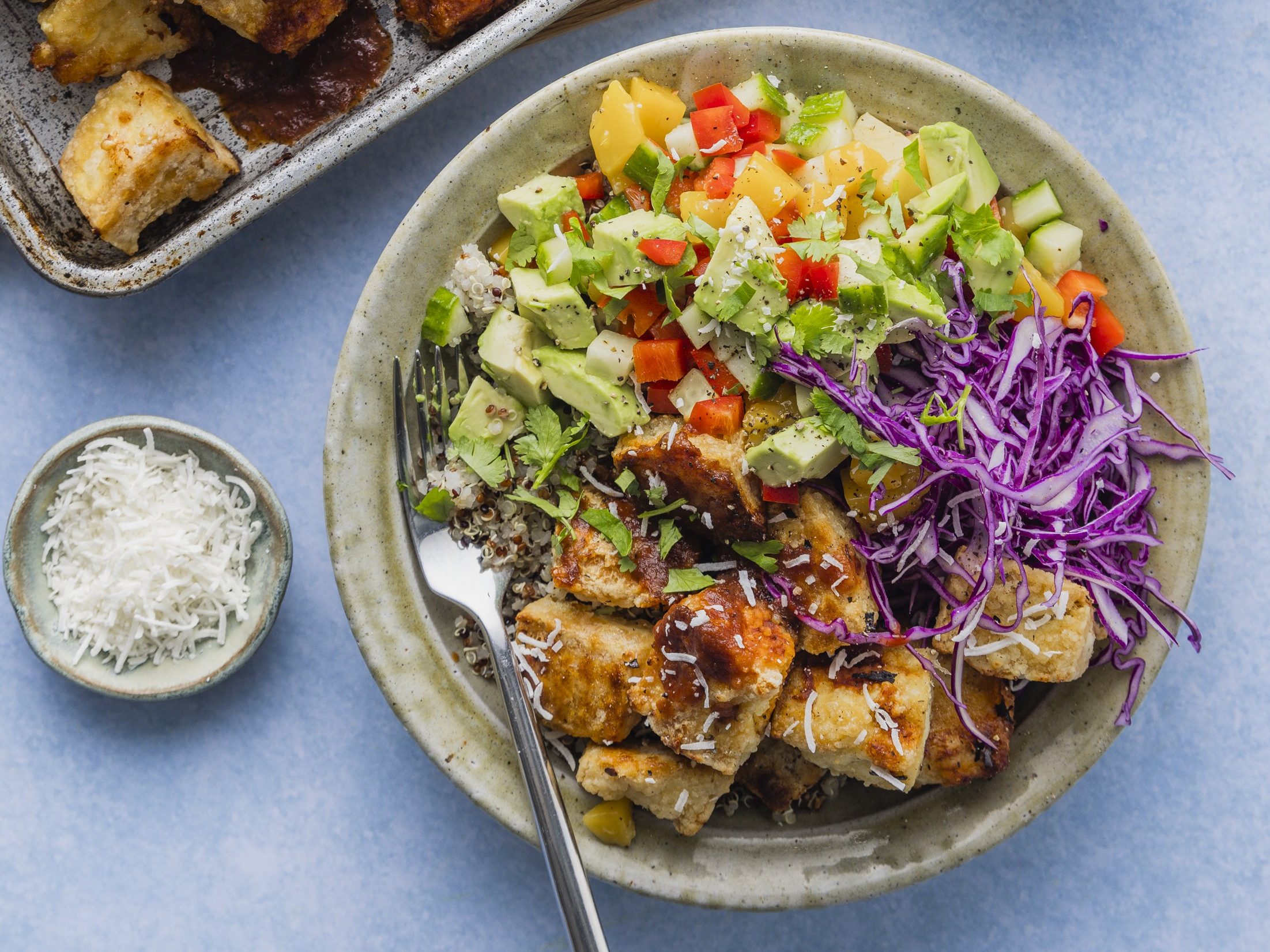One of the biggest barriers to sticking with a diet is how it makes you feel. Restrictive approaches may seem effective at first, but they often leave you low in energy, irritable, and frustrated. Over time, this emotional toll is what causes many people to give up.
When food feels supportive rather than restrictive, it becomes easier to stay consistent, make better decisions day to day, and keep momentum going.

That’s why it’s so important to focus on sustainable approaches built on balanced meals and everyday habits you can maintain long term. Not only does this support your health goals, it also plays an important role in mental wellbeing.
In this blog, our Nutrition Team shares how to support your mood with food, along with practical ways you can start today.
How Food Affects Mood
The way you eat does more than fuel your body – it can also affect your brain and how you feel each day. Research shows that healthy eating patterns, such as the Mediterranean diet, are linked to better mental health compared to patterns like the typical Western diet [1,2].
The Mediterranean diet emphasises plenty of fruit, vegetables, wholegrains, legumes, nuts, olive oil, and moderate amounts of lean protein and dairy. These foods provide fibre, antioxidants, and healthy fats that support both the brain and the gut. In contrast, the Western diet is typically higher in processed foods, added sugars, and saturated fats, which are associated with inflammation, unstable energy, and a poorer mood [3].
The effects of certain foods and dietary patterns on blood sugar control, immune activation, and the gut microbiome may help explain why nutrition is linked with mood [1]. While more research is needed to fully understand these mechanisms, what we do know is that a balanced, varied diet provides a strong foundation for both physical and mental wellbeing.
Simple Ways to Support Your Mood with Food
- Build balanced meals – Combining protein, fibre, and healthy fats helps steady your blood sugar and reduces the spikes and crashes that can leave you feeling irritable or craving sugar.
- Eat enough protein – Protein-rich foods like eggs, yoghurt, legumes, fish, chicken, and tofu provide the building blocks for neurotransmitters that influence mood.
- Don’t skip carbs – Wholegrains, beans, and starchy vegetables are a key source of energy and play a role in producing serotonin, your body’s “feel-good” hormone.
- Eat a rainbow – A variety of colourful fruits and vegetables provide antioxidants and plant compounds that reduce inflammation and support brain health.
- Include omega-3 fats – Found in salmon, sardines, walnuts, chia seeds, and flaxseeds, omega-3s are linked to brain function and may help support mood.
- Stay hydrated – Even mild dehydration can impact concentration and mood. Aim for regular fluid intake throughout the day.

Challenge Yourself
This week, focus on small changes that can help stabilise energy and support your mood. Pick one or two goals to try:
- Add colour to your plate – include at least three different coloured fruits or vegetables at breakfast and lunch.
- Prioritise protein in the morning – start your day with 20–30 g of protein (some ideas include eggs, Greek yoghurt, cottage cheese, or adding protein powder to smoothies.
- Include an omega-3 food – add salmon, chia seeds, walnuts, or flaxseeds to one of your meals this week.
- Drink more water – keep a water bottle nearby and aim for at least 6–8 glasses a day.
- Slow down at mealtimes – take 20 minutes to eat one meal each day without distractions.
The Bottom Line
There is no “magic” diet that works for everyone. The most effective approach is one that is balanced, flexible, and enjoyable – something you can see yourself doing long term.
Instead of chasing the latest fad, focus on habits that nourish both your body and mind. With balanced meals, variety, and moderation, you will not only support your physical health but also your mood and energy along the way.
References
- Firth J, Gangwisch JE, Borsini A, Wootton RE, Mayer EA. Food and mood: how do diet and nutrition affect mental wellbeing? BMJ. 2020;369:m2382. doi:10.1136/bmj.m2382.
- Arab A, Mehrabani S, Moradi S, Amani R. The association between diet and mood: a systematic review of current literature. Psychiatry Res. 2019;271:428-37. doi:10.1016/j.psychres.2018.12.014.
- Noble EE, Hsu TM, Kanoski SE. Gut to brain dysbiosis: mechanisms linking western diet consumption, the microbiome, and cognitive impairment. Front Behav Neurosci2017;11:9. doi:10.3389/fnbeh.2017.00009 pmid:28194099

